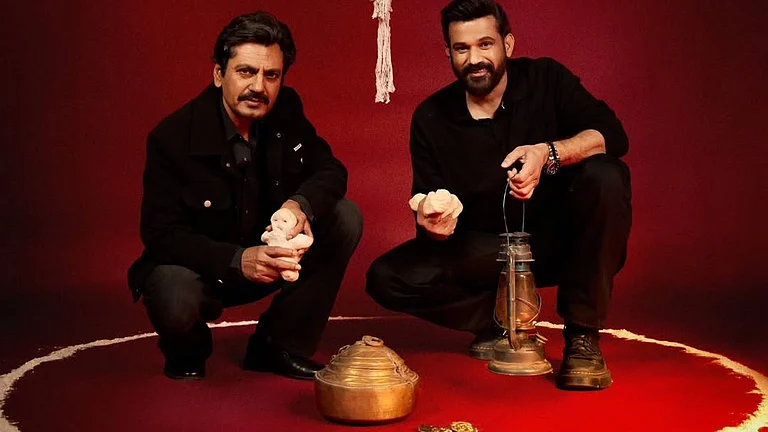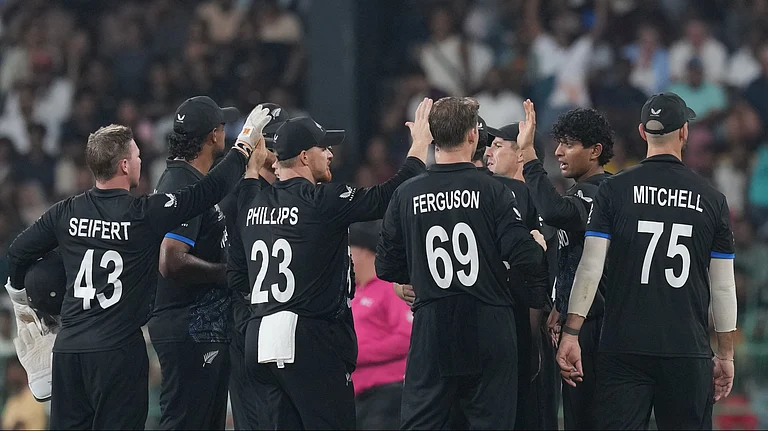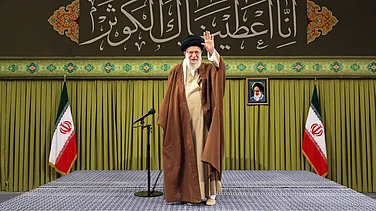The unexpected and untimely mutiny by Yevgeny Prigozhin, the head of the private army Wagner Group, which for the last one year had been in alliance with Russia in Ukraine War, has profound geopolitical implications.
Firstly, Prigozhin was considered a staunch ally of Russian President Vladimir Putin. Secondly, he reportedly commanded an army of around 25,000 soldiers in the Ukraine War and the revolt considerably weakened the morale of the Russian armed forces. Thirdly, the seizure of the strategically-located military headquarters at Rostov-on-Don by Prigozhin reflected somewhat the weaknesses of the Russian army to foil such attempts. Finally, the mutiny gave a new twist to Ukraine and the West, in general, to somewhat have an upper hand in the ongoing war.
Some of the above developments also raise pertinent questions. These are:
• How will the West respond to the situation created by Prigozhin’s mutiny?
• How will Russia under Putin’s leadership respond to the problem?
Reports from Moscow show that the Russian leadership was quite successful in foiling the attempt of Prigozhin to take over power. He is now set in Belarus after successful negotiations and his Wagner Group’s soldiers are going back on the war-front against Ukraine. But this sort of mutiny by Prigozhin, a former chef of the Kremlin who turned private army operator, has surprised many. One may recall here that it were the Wagner Group soldiers that captured Bakhmut, considered a crucial strategic point in the current war. This gave Russia a tactical advantage. But the mutiny by Wagner soldiers under the leadership of Prigozhin surprised many, especially the Russian policymakers.
This incident prompted Putin to address the country. In a televised address, he stated that “those who staged the mutiny and took up arms against their comrades — they have betrayed Russia and will be brought to account”. But it’s crucial that one looks at the factors that promoted the mutiny by Prigozhin’s Wagner Group, once considered a loyalist to Putin.
One factor may be the personal ambitions of Prigozhin, who, soon after the mutiny, declared his political ambition and ordered his private army to march towards the capital city of Moscow. This unexpected development put the Russian government machinery in a difficult position. Though the Russian Defence Ministry rushed the troops to bring the situation under control, the damage had been done by Prigozhin. The shooting down of the helicopters of the Russian army and controlling the military headquarters at Rostov-on-Don, which oversees the war in Ukraine, are an indication of the prowess of Prigozhin. Though, later on, his attempt was foiled by Russian administration.
The surprising mutiny by Prigozhin also reflects another aspect of the Russia-Ukraine War. It also reflects the sagging morale of Russian soldiers who have been waging war against Ukraine since last year without any result. Even Prigozhin in a message published on Telegram raised this issue of social protection of soldiers just a couple of days before the mutiny. He also refused to sign a contract with the Russian Ministry of Defense. He stated, “Today, we are at war. We were told to conclude a contract with the Ministry of Defense. Who will we be told to sign a contract with tomorrow?” However, the Russian Defence Ministry failed to read the message of Prigozhin so that the present situation could have been averted.
This, in a way, reflects the failure of the Russian Defense Ministry to rein on private military units employed by Russia in its war against Ukraine. The biggest challenge for Russia is now to regulate these private military units because if Ukraine lures them by paying a higher price or some other allurement, it could impact Russia’s war efforts.
The biggest question that needs to be considered is how Ukraine and the West will respond to the situation. Indeed, the revolt by Prigozhin gave a tactical advantage to Ukraine in the War as Kyiv got the upper hand in the psychological warfare with Russia. This is evident on the Twitter account of Ukrainian President Volodymyr Zelenskyy, where he emphasised, “And the longer Russia keeps its troops and mercenaries on our land, the more chaos, pain, and problems it will have for itself later. It is also obvious. Ukraine can protect Europe from the spread of Russian evil and chaos.”
Soon after the revolt, Zelenskyy started talking to US President Joe Biden and other Western counterparts regarding the future of war. The mutiny also gave enough ammunition to the Western countries to launch a tirade against Russia. Since the NATO Summit will happen soon, this incident may allow NATO to restrategise its war-strategy against Russia. However, Russian authorities are rubbishing any such damage to Russia in its war efforts against Ukraine after the mutiny.
However, as evident from Russia’s diplomatic move, it set an alarm bell for Russia. Soon after the mutiny, Putin called on the Presidents of Uzbekistan, Belarus, and Kazakhstan. He apprised them of the situation in Russia following the mutiny. It may be recalled here that Kazakhstan is an important partner in the Collective Security Treaty Organization (CSTO), the regional security organisation in the post-Soviet space. In this regard, Belarusian President Aleksandr Lukashenko played an important role in defusing the crisis as he talked to Prigozhin. Reportedly, the rebel leader is in Belarus. This helped the situation to stabilise in Russia.
So, this also highlighted the significance of regional security mechanism in post-Soviet Eurasia. In any emergency, CSTO could have involved itself in normalising the situation.
Looking at some of the developments discussed above, one can draw three significant geopolitical implications relevant to Russia. One, the mutiny certainly jolted Russia’s war against Ukraine —though temporarily— as it is in a crucial phase. Two, the West got a tactical advantage along with Ukraine at this phase even though the mutiny ended. Three, the brief setback may propel Russia to pursue a war with Ukraine by employing nuclear weapons.
Looking at the current political developments in Russia, it can undoubtedly have geopolitical ramifications. In the coming days, Russia will receive considerable challenges from Western countries taking advantage of its present setback.
Russia should try to strengthen its relations with Commonwealth of Independent States (CIS) countries to counter the West. At the same time, Russia and Ukraine should enter a peace agreement to end the one-year-old war.
(Nalin Kumar Mohapatra is an Assistant Professor at the Centre for Russian and Central Asian Studies, School of International Studies, Jawaharlal Nehru University. The views expressed are personal.)





















